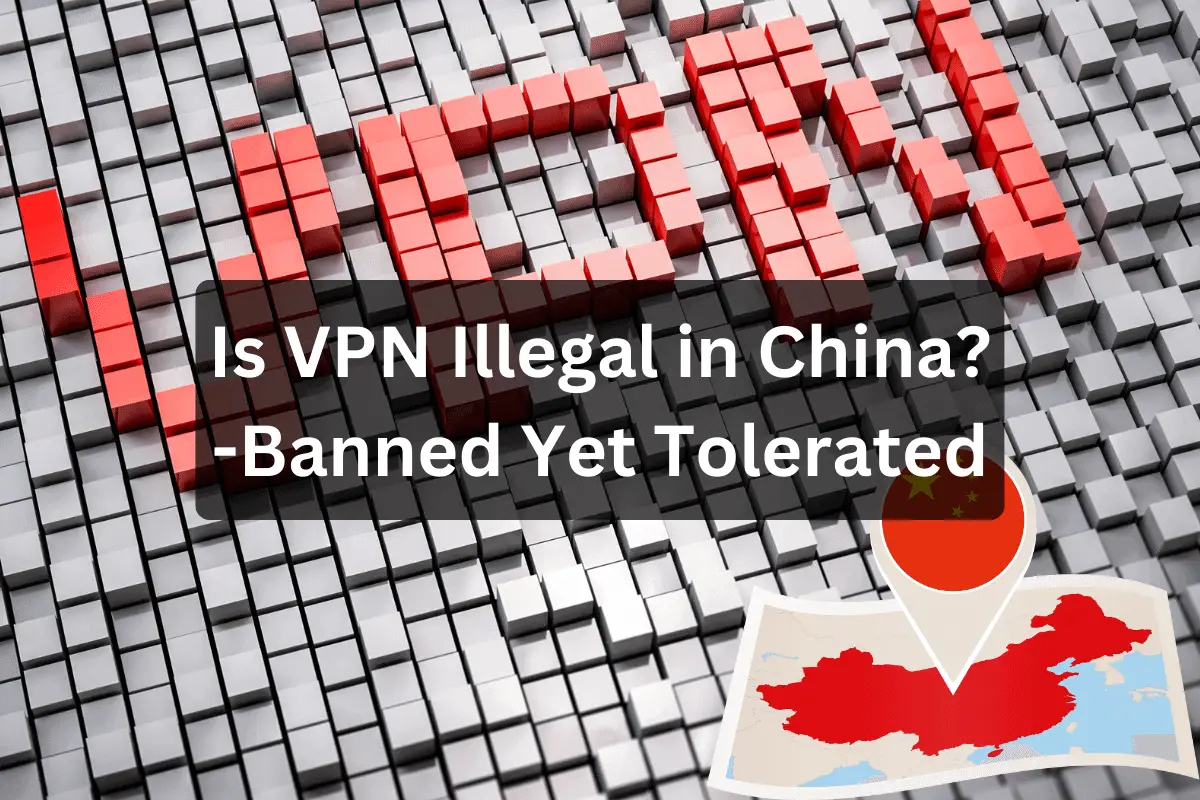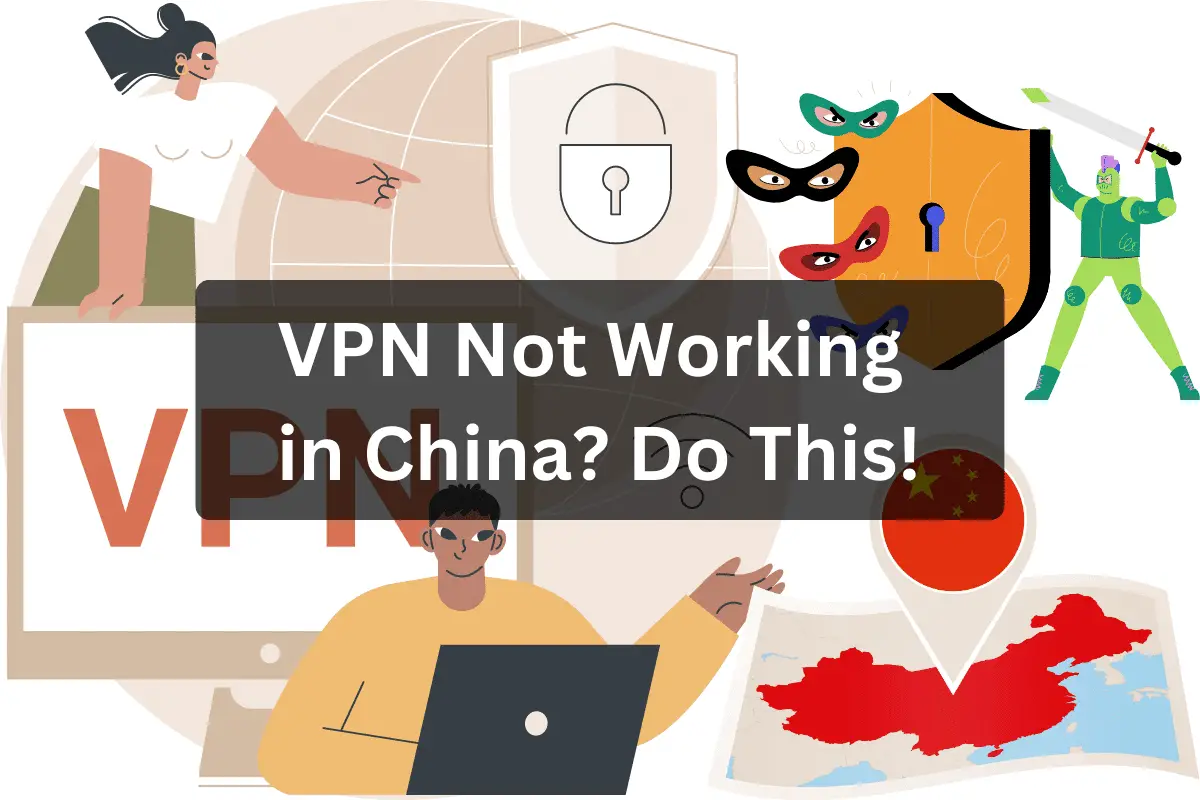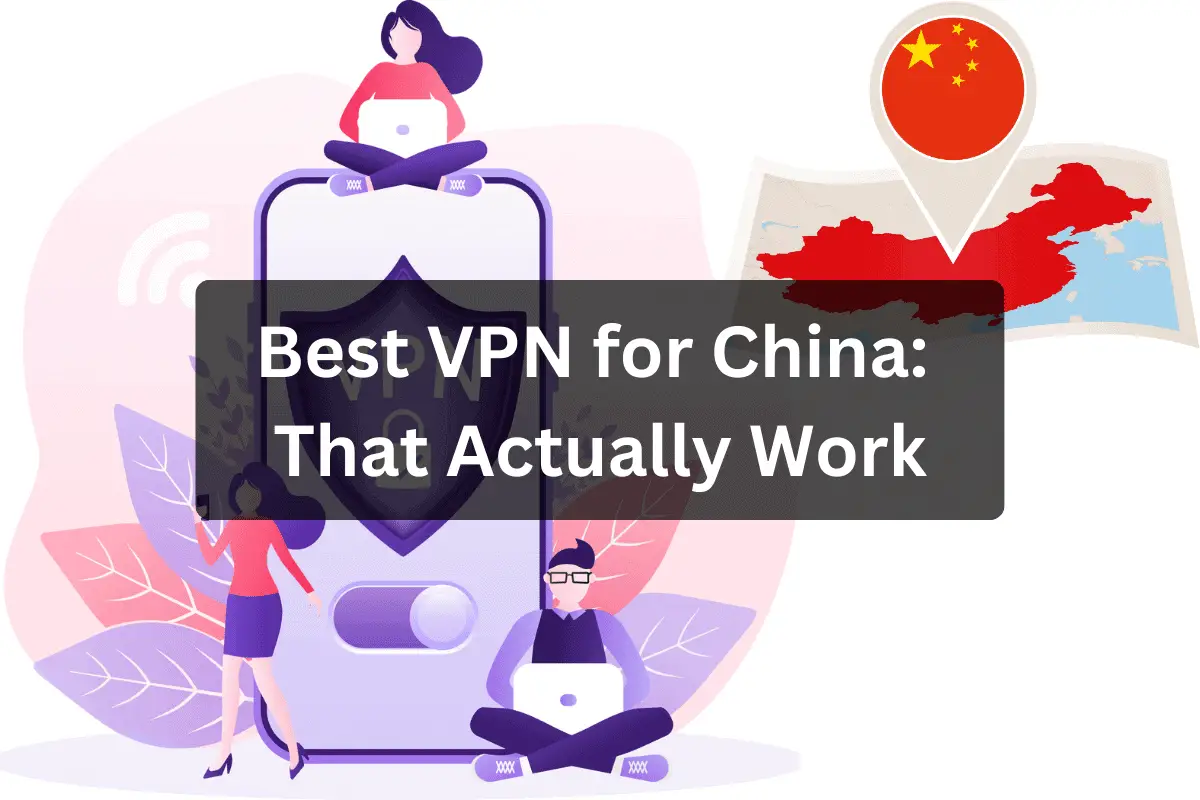Before planning your trip to China, you must have heard about China's powerful internet censorship apparatus – the Great Firewall.
Many popular international apps and sites are blocked in China, and the use of any unsanctioned VPN to bypass the firewall is prohibited.
However, if you want to access Google, Twitter etc. in China, you have little choice but to use a VPN.
So the legality of using a VPN in China is a concern for every foreign visitor.
The answer is somewhat complex – authorities have strict laws but lax enforcement, so it's situational.
Personally, I've used VPNs in China for over 10 years without any harassment from authorities. And to my knowledge, millions use VPNs daily for foreign news and business with few arrests.
So VPN use is tacitly tolerated by the powers that be.
I'll explain this all in detail below, so keep reading.
Why Using VPN in China?
1.To Access Blocked Websites and Apps.
The Chinese government blocks a wide range of websites and apps, including Google, Facebook, Twitter, and YouTube etc. A VPN can help you bypass these blocks and access the content you want.
2.Helps You Stay in Touch with Friends and Family.
When you travel to China, without a VPN, you won't be able to access platforms like WhatsApp and mainstream email services like Gmail. A VPN can ensure your family and friends don't worry about staying in touch with you.
3.To Protect Your Privacy And Security.
Regardless, staying cautious at all times is essential. China has witnessed numerous cases of telecommunications fraud in recent years.
While these incidents are rarely aimed at foreigners, it's still important to safeguard your privacy and avoid drawing any unwanted attention.
Are VPNs Illegal in China?
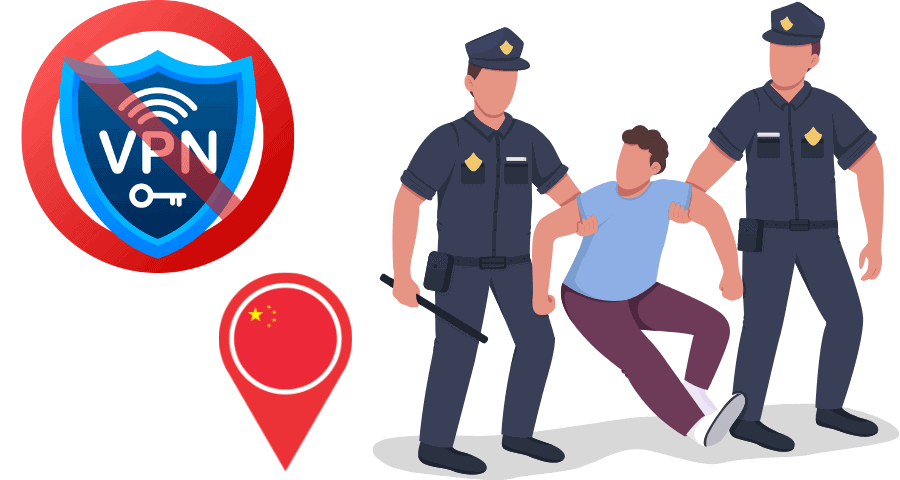
There are several concerns tied to this question, let me provide some brief responses.
1.Are Tourists Allowed to Use VPN in China?
Officially prohibited but permitted in practice.
Yes, that's China – authorities have final say on enforcement.
As a tourist, you'll be left alone unless you have malicious intent.
2.Can I Get Arrested for Using a VPN in China?
No, you won't be arrested.
You can use a VPN in China for regular browsing of news sites like BBC, watching video platforms like YouTube and Netflix, accessing social media like Facebook and Twitter, and keeping in touch with family via WhatsApp etc.
However, it's best to avoid risky activities like political discussions about authorities.
3.Will Chinese Authorities Check My Phone and Laptop at the Airport?
No.
If you are a regular tourist, nobody cares what's on your phone or laptop.
However, China may impose tighter VPN restrictions in sensitive regions like Xinjiang and Tibet.
4.Is Watching Porn via VPN in China Illegal?
It's legal but only for watching.
Please do not share or post pornographic videos, distributing pornography is illegal in China.
Punishment for Using VPN in China
Legally speaking, using unauthorized VPNs in China does indeed go against regulations. However, law enforcement rarely targets regular individuals using VPNs.
Nevertheless, over the past decade, there have been instances where some Chinese citizens were penalized for using VPN.
For example, in 2020, a man was fined for using a VPN to access foreign porn websites.
But such cases are extremely rare and result in light penalties, typically fines or verbal warnings. Foreign tourists have never been punished for using VPNs.
What China takes severe action against is the unauthorized sale of VPN services. Anyone engaging in such activities can be arrested, especially if they are operating within China's borders.
Why Doesn't China Completely Ban VPN?
The short answer is that VPNs are a part of maintaining international business.
In reality, China has had officially authorized VPN providers, mainly for corporate use. Furthermore, the authorities in Beijing have recently allowed foreign businesses to invest in VPNs in China.
As for personal VPN use, the Chinese government primarily focuses on cracking down on individuals and organizations that profit from providing VPN services illegally. They generally pay less attention to the private use of VPN by both Chinese citizens and foreigners.
Considering that millions of people in China use VPN daily, the enforcement costs would be quite substantial.
How Many Chinese People Use VPN?
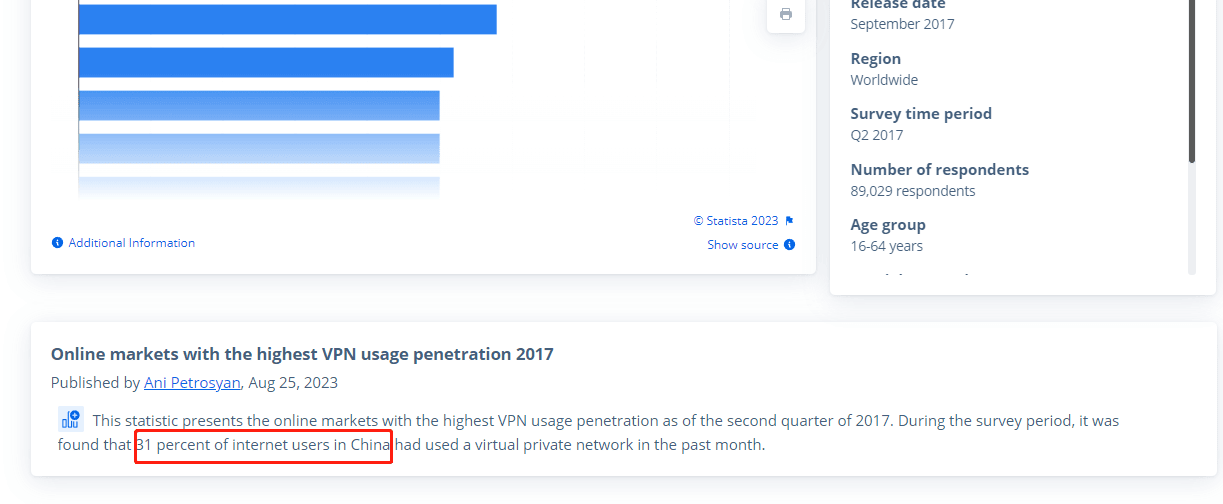
According to Statista, as of 2017, around 31% of Chinese internet users (equivalent to tens of millions of people) were using VPNs to bypass the internet firewall.
Therefore, using VPNs in China is essentially a gray area. There's no official legislation permitting it, but there's also no strict crackdown.
For regular citizens and foreign tourists, using VPNs is generally safe.
Do I Need a VPN in China?
If you simply want unrestricted access to blocked websites while in China, there are two ways to achieve this:
- Purchase data roaming from the carrier.
- Subscribe to VPN service.
For option 1, China doesn't restrict foreign carrier networks, which I believe is one of the traveler-friendly aspects.
This means you can have unrestricted access to the international internet with data roaming.
However, data roaming often comes with time and data limits, and it's not usually cheap (you'll need to check with your data carrier for specifics).
Most importantly, data roaming won't connect you to China's convenient Wi-Fi networks, which means you'll have to use your purchased data.
Additionally, there might be instances when you lose signal or experience connectivity issues.
This is why using a VPN is a more cost-effective and convenient choice.
Plus, most VPNs offer refund guarantees, so you don't have to worry about wasting your money.
Which VPN Works in China?
You might have heard of or been recommended ExpressVPN and NordVPN.
However, believe me, while ExpressVPN and NordVPN might have performed well in the past, they are no longer effective in China.
These are the ones I've recently tested and found to be the best VPNs in China.
You can trust them 100%.
MY TOP PICK
Best Availability
Best Overall

| Favorite Feature | 99% Availability |
| Promotions: | 58% off for 2 years |
Best Alternative
Best Overall

| Favorite Feature | Easy to use |
| Promotions: | 66% off for 1 year |
Best Privacy Protection
Best Overall

| Favorite Feature | Privacy Protection |
| Promotions: | 57% off for 2 year |
Interested in learning more?
Here's my review of the best VPNs in China.
FAQs
Does China Allow VPN?
China doesn't allow the unauthorized sale of VPN services, but using VPN for personal use is effectively tolerated as long as there's no malicious intent.
You're free to use VPN to access the international internet, but it's advisable not to distribute VPN software on a large scale to others.
Is It Illegal for Foreigners to Use VPN in China?
Foreigners are allowed to use VPN in China, and at the same time, many Chinese citizens also use VPN.
Do Chinease Citizens Using VPN?
Yes, many Chinese people use VPNs to access international news and engage in international trade.
Which VPN Are Legal in China?
Astrill VPN is considered one of the best legitimate VPNs for use in China.
It has a strong reputation over the years and maintains high availability within Chinese territory.
Is NordVPN Legal in China?
China doesn't punish individuals for using NordVPN, but NordVPN has been recognized and blocked by the Chinese internet firewall.
Reddit users have reported that it's nearly unusable in China.
You should consider switching to a different VPN.
Is Express VPN Legal in China?
ExpressVPN used to work well in China in the past, but it's currently ineffective due to the heightened internet restrictions.
